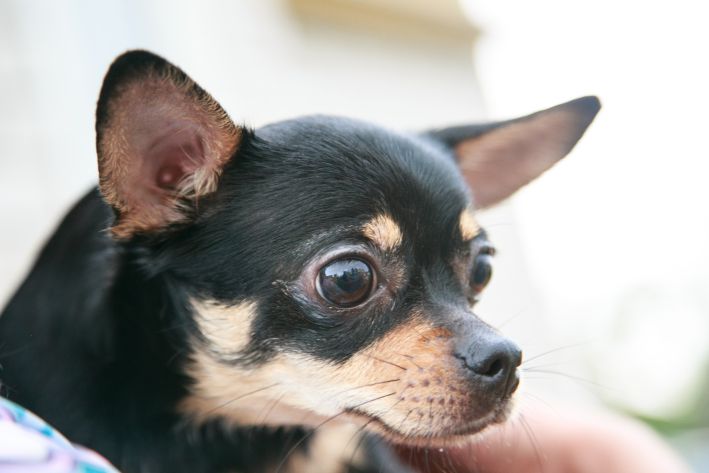Dogs, like people, dream. In their sleep, dogs can make various sounds - whine, growl, bark. This is absolutely normal.
Barking in a dream indicates that the dog is having a vivid, emotional dream. Most likely, it is dreaming of chasing someone or playing a game.
Sometimes a dog may dream of something alarming, such as a stranger approaching. Then the barking will sound more threatening.
Barking in a dream should not bother you. It is not dangerous to the dog's health. Its brain is simply active in a dream, and the dog behaves as if what is happening was reality. Do not wake your pet at such moments - let it watch its dream to the end.
What to do if your dog barks frequently in its sleep
If barking in sleep happens rarely, it is normal. But sometimes dogs start barking every night, and this can disturb the owners. Most often, this happens because of:

- anxiety. If there is a tense atmosphere in the house, the dog may react by barking in its sleep;
- loneliness. Dogs left alone for long periods of time have nightmares;
- old age. Older dogs are more likely to have disturbing dreams.
To reduce barking in your sleep:
- create comfortable conditions for the dog;
- give her a lot of attention and care;
- give calming toys, such as Kongs;
- put something with your scent nearby.
If this does not help, contact your vet. The barking may be due to health problems.
Sleep Barking in Puppies
Sleep barking is a very common occurrence in puppies aged 2-9 months. This is due to the peculiarities of their sleep at this age.
Adult dogs sleep in rapid eye movement (REM) and slow eye movement (NREM) periods. REM sleep is characterized by brain activity and dreaming. Slow eye movement (NREM) sleep is deep rest.
Puppies under 3 months of age have predominantly rapid sleep. That is why they are very active, throw up their paws, make sounds. These are involuntary movements, the dog does not control them.
With age, the proportion of slow sleep increases. Sleep barking in a puppy will gradually disappear by 9-12 months. Do not be alarmed by this and do not wake the baby.
What to do if a puppy barks in its sleep:
- Make sure your puppy is okay. If he is healthy, barking is safe.
- Do not wake or punish your puppy for barking. This is instinctive behavior.
- Let the puppy sleep through to the end of his nap.
- Create a calm, comfortable environment for sleep.
- Place a toy with your scent in the crib.
- As he gets older, barking in his sleep will go away on its own.
Sleep barking is part of normal puppy development. There is no need to worry about it. Just be patient and your little one will grow out of it.
When to Worry About Sleep Barking
Barking in a dream is usually harmless, but sometimes it can signal health problems with the dog.
You should be wary if:
- The barking is too loud, hysterical. The dog howls, whines, and shakes.
- The barking does not stop for a very long time, 10-15 minutes or more.
- The dog tries to hide, huddles in a corner, and trembles.
- Other changes in behavior are also observed - aggression, increased anxiety.
- The barking episodes are repeated every night for a week.
- Barking is accompanied by a loss of control over the bladder.
In such cases the reason may be:
- Disease. For example, neurological disorders, joint pain, gastrointestinal problems, tumors. Barking is a reaction to discomfort.
- Anxiety disorders in dogs. Phobias, separation from the owner.
- Nightmares due to stress, such as past abuse.
- Old injury or dementia in older dogs.
- A side effect of taking certain medications.
What to do:
- Observe your dog. Write down when and under what circumstances the barking occurs.
- Examine the dog for wounds, inflammation, or other abnormalities.
- Check the environment to make sure everything is comfortable for the dog.
- If the cause is unclear, consult your veterinarian.
- Tests, ultrasound, and X-rays may be required to make a diagnosis.
- Treatment depends on the cause of the barking and may include medication, physical therapy, training, and behavior modification.
Do not ignore the problem. The doctor will assess the dog's condition and select the right treatment. With timely therapy, barking in sleep can usually be eliminated.
Now you know why dogs bark in their sleep. I hope this information was useful and will help you understand the peculiarities of your pet's sleep.
Earlier we listed 3 things that a pet rat needs to be happy.








